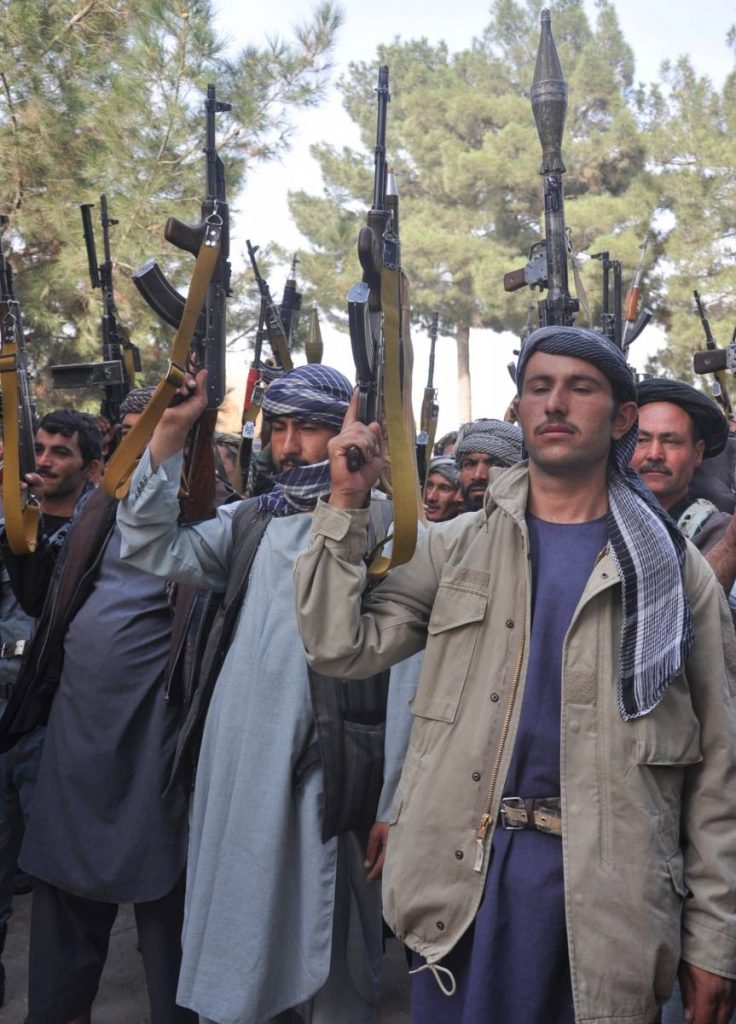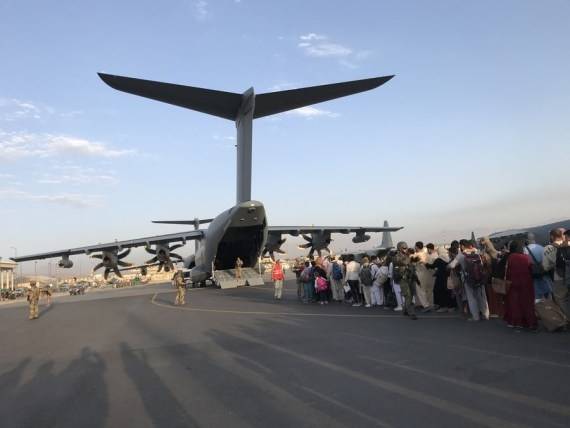The Islamic State of Khorasan Province (ISKP) might have claimed responsibility for the attack, but without Pakistan’s patronage and management, camouflaged in intricate webs of deceit, the terrorist group could not have carried out the attack on its own …. Writes Kaliph Anaz
Pakistan’s fig-leaf of deniability in the devastating Kabul Airport attack, which killed over 100 Afghans and more than a dozen American soldiers, must be exposed without delay. The smokescreen of a cover up that is being orchestrated by vested interests is a portender of another Cold War in the making and needs to be cleared at the earliest.
The Islamic State of Khorasan Province (ISKP) might have claimed responsibility for the attack, but without Pakistan’s patronage and management, camouflaged in intricate webs of deceit, the terrorist group could not have carried out the attack on its own.

It is quite easy to see where the web of connections tracing Pakistan’s involvement in the Kabul attack start–in Jalalabad, Lahore and Bahawalpur.
Jalalabad is the capital of Nangarhar province in Afghanistan, adjacent to the Pak border, where the Haqqani Network has ruled supreme for several decades. With the decline of Al Qaeda and ISIS, the Haqqani Network is one of the deadliest and resourceful terrorist groups in the world today. The network is supported and protected by Pakistan which has offered several sanctuaries to the group in the tribal areas along the border with Afghanistan.
Without the Haqqani Network, the Taliban could not have run over Afghanistan as it did this year. Jalaluddin Haqqani, the leader of the terror conglomeration, is also a founding member of the Taliban and is part of the group’s decision-making shura or council. The network, the only global terrorist entity to survive two-decades of sanctions and military action, acts as the pincer head of the Taliban military operations.
Another Haqqani member of importance is Khalil Haqqani, considered to be the Taliban’s emissary to Al Qaeda, an asset shared by CIA and ISI for long and currently claiming himself to be the Taliban’s head of security for Kabul.
The relationship between the Haqqani Network and Taliban is not a secret. Nor is the relationship the two groups share with Pakistan. So, where does ISKP fit in with this troika of evil?
On the face of it, ISKP is an adjunct of ISIL (ISIS), a global terrorist entity that claims to fight for an Islamic “caliphate” in Iraq and Syria, and beyond. The ISKP emerged in the Nangarhar province of Afghanistan in 2015 and since then has been part of the terrorist enclave in the Af-Pak region. Although the ISKP had initially declared itself to be against the Taliban and al Qaeda for straying away from jihad, its policy of drawing in disgruntled cadres from the Taliban and other terrorist groups in the region came in handy for ISI to infiltrate its leadership and ranks.
The ISKP leadership came from the Haqqani Network or Lashkar-e-Tayyeba (headquartered in Lahore), two global terrorist entities with close ties to the Pakistan Army. The most recent report of the UN Secretary General on the threat posed by ISIL, ISKP’s new leader, Shihad al-Muhajir was a former hard-core member of the Haqqani Network. Not only do the groups share cadres, they are also partners in drug trafficking, militancy and ties to Pakistan. Besides the working relationship, these two groups are also bound through tribal and marriage ties.
Evidence of this complex relationship was confirmed, according to a recent New York Times report, when biometric profiling of detained ISKP terrorists revealed that biometrics data of certain terrorists were already stored in the database; they were previously arrested as Haqqani Network members. In other words, the leaders and cadres often shifted between the groups depending on requirements.
If there was a proof required to establish the ties between the HaqqaniNetwork-ISKP and Pakistan, it surfaced when the Pakistani leader of ISKP, Aslam Farooqi (Abdullah Orakzai) was arrested by Afghan security forces in Kandahar last year. He was involved in the March 2020 attack on a gurdwara in Kabul which killed over 25 persons. Farooqi revealed how the ISKP was not only associated with the Haqqani Network but was also deeply involved in Pakistani groups like LeT and JeM. Farooqi was in fact a LeT leader before he migrated to ISKP, a clever tactic put in place by Pakistan Army to outsource terrorist attacks without getting its sleeves bloodied, or that of the Taliban.

Another former LeT leader whose arrest in April 2020 confirmed this troika was Muneeb alias Abu Bilal. He was an ISKP leader with close ties to the Taliban’s Peshawar shura, LeT and the Haqqani Network.
One of the most telling proofs of the involvement of the Haqqani Network-ISKP-LeT in the Kabul attack is the modus operandi–a planned assault using multiple offensive tactics, with specific objectives, including mass casualties. The Pak Army tactic, the Kabul Airport attack revealed, was quite straightforward–LeT cadres, already operating out of many provinces in Afghanistan, would carry out reconnaissance of potential targets, the Haqqani Network would prove organisation and logistical planning and ISKP, with its cadres trained in camps run by JeM (headquartered in Bahawalpur) carry out the attack and claim responsibility. This strategy was evident in the May 12, 2020, attack on the Dasht-e-Barchi hospital in Kabul and the bombing of the Sayed ul-Shuhada High School in Kabul on May 8, killing over 90 people, mostly schoolgirls.
In a documentary, an Afghan media group, Tolo News, last year revealed how ISI was acting as a HR department for the Haqqanis as well as ISKP supplying them with cadres from LeT and JeM besides giving the group around $200 million as aid every year. Former Pakistan ambassador to the US and author, Hussain Haqqani, labelled the relationship quite succinctly- “ISKP is an outcome of the ideological extremism of Pakistani jihadi movements.”
The ISKK’s claim of carrying out the Kabul attack is a smokescreen created by Pakistan Army to distance itself, the Taliban and the Haqqani Network from such a ghastly act of terror. Pakistan is eager for the international community, including China, to recognise the Taliban as a `moderate force`, to pre-empt possible FATF blacklisting if the Haqqanis were to be accused while showing emphatically who really the kingmaker in Afghanistan is.

Leave a Reply